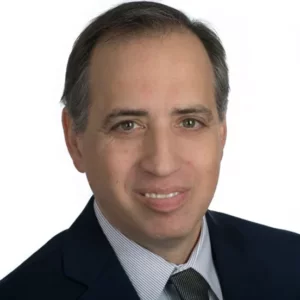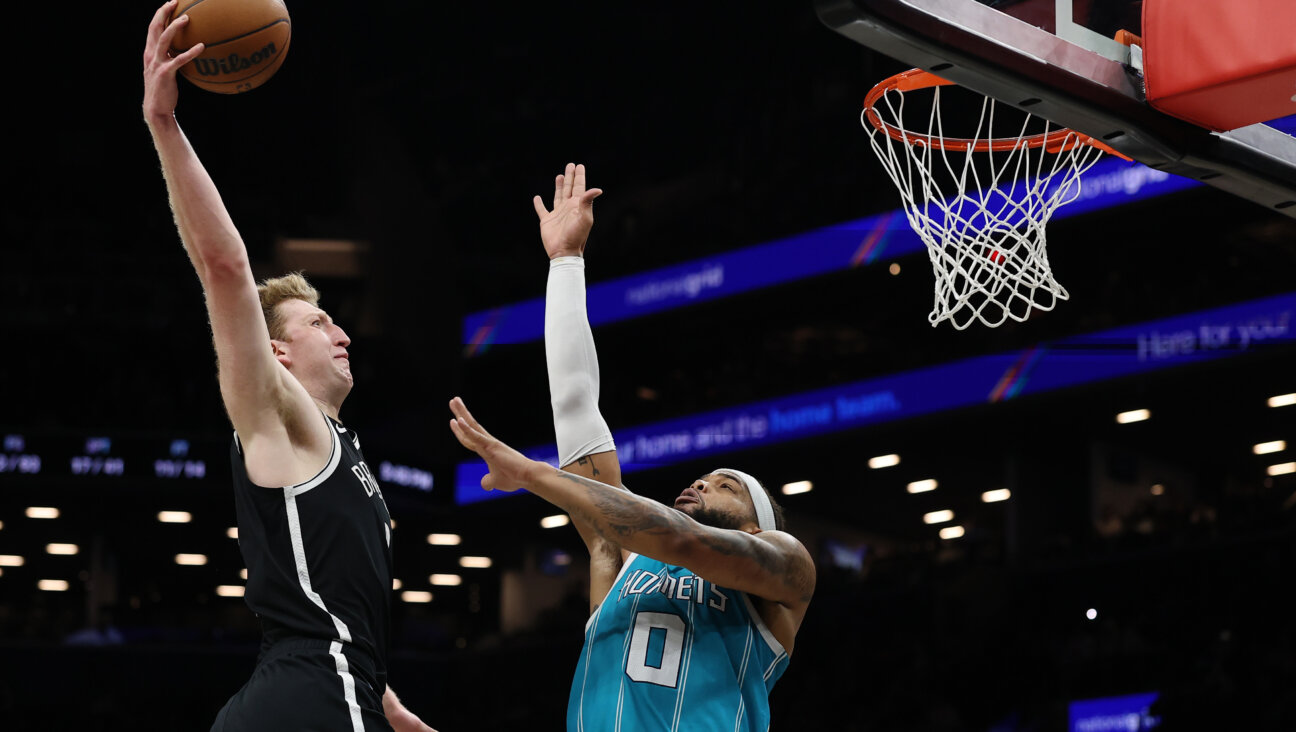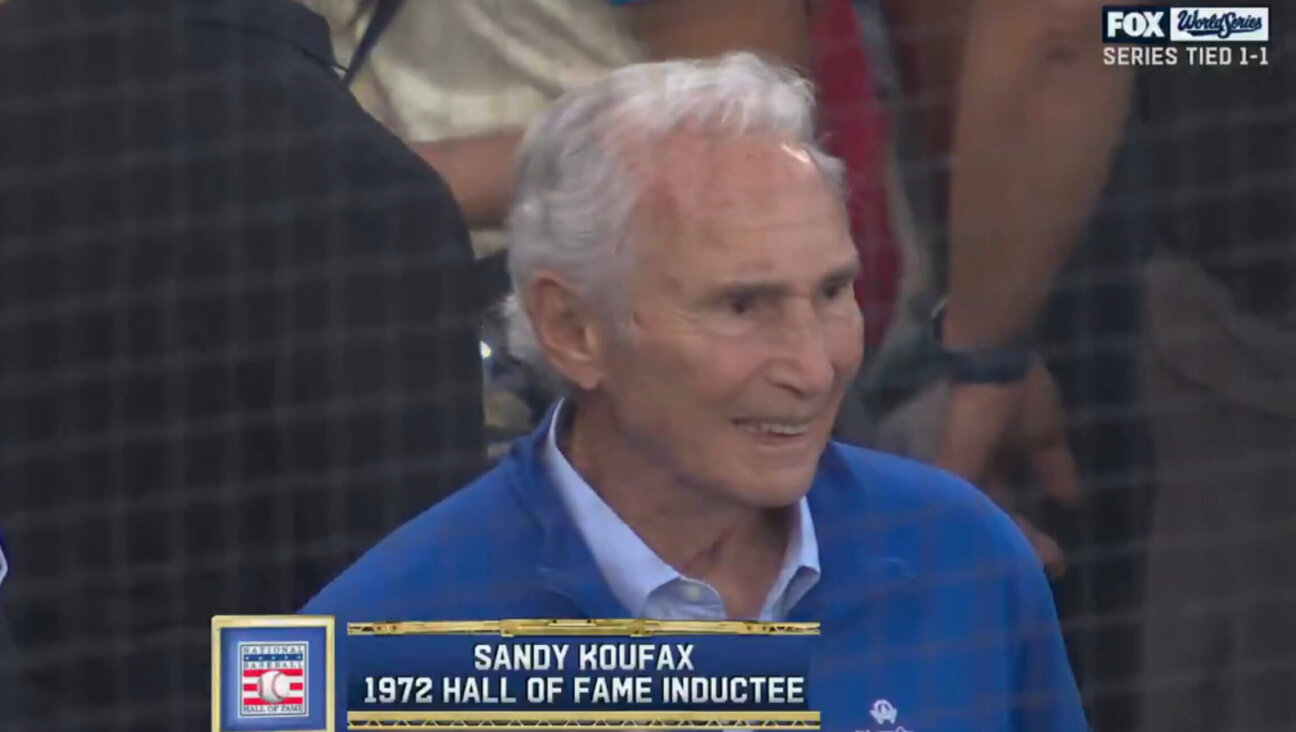He grew up on a kibbutz. Now he’s coaching the Cincinnati Reds
Alon Leichman’s parents, who moved from the US to Israel before he was born, helped found the sport in the Jewish state
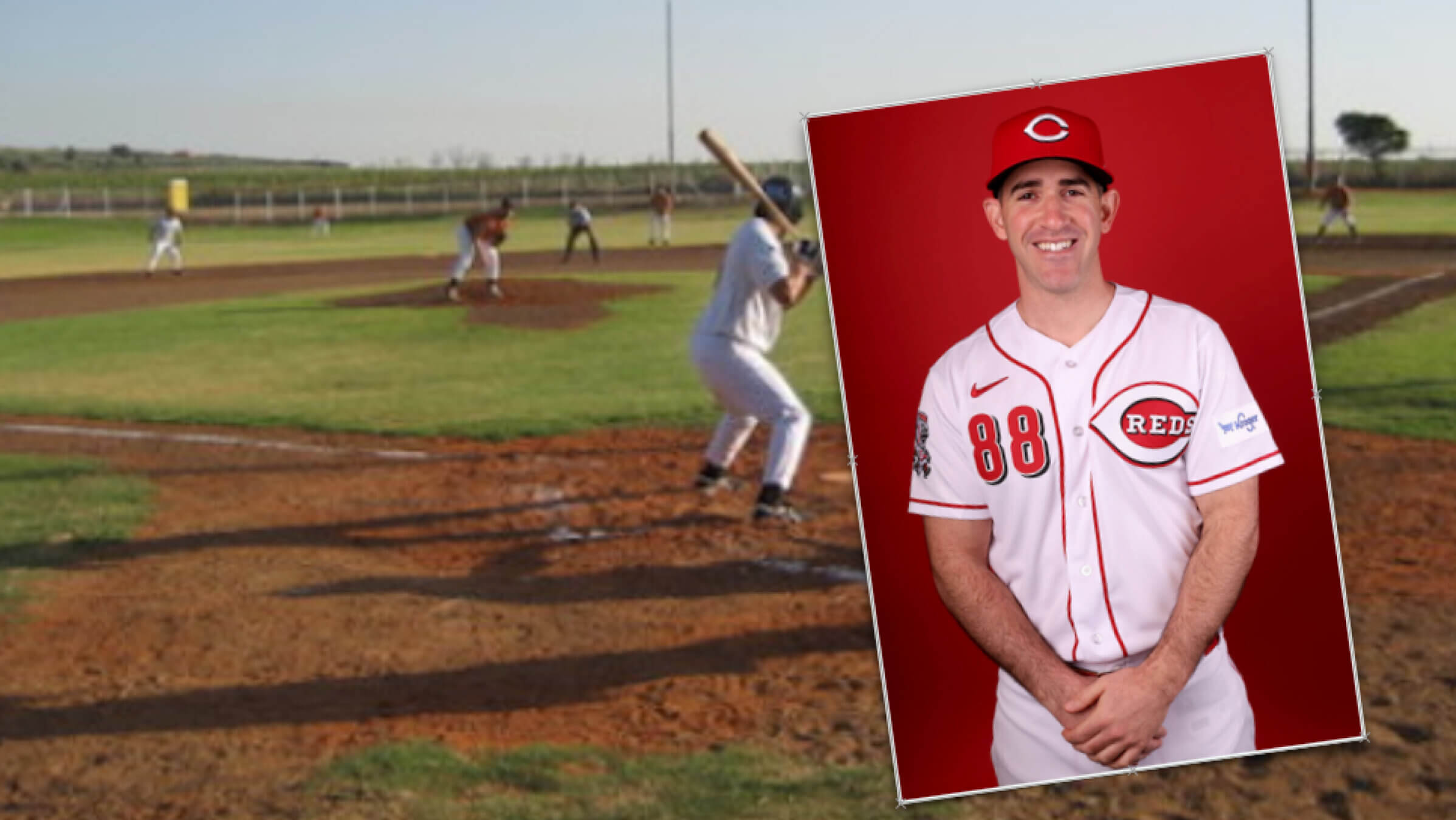
Alon Leichman, a new assistant coach for the Cincinnati Reds. Background is the baseball field on which he learned to play, the first in Israel, on Kibbutz Gezer. Photo by Steph Chamber/Getty Images and Kibbutz Gezer
There have been unusual paths to major league rosters, but none perhaps as unorthodox as Alon Leichman’s, which took him from an Israeli kibbutz to Cincinnati’s Great American Ball Park, where he is the new assistant pitching coach of the Reds.
Leichman grew up on Kibbutz Gezer in central Israel, roughly halfway between Jerusalem and Tel Aviv. As a boy in the 1990s, he played baseball at a time when the sport didn’t have much of a foothold in the country. In fact, the baseball field on his kibbutz was pretty much the only one in Israel at the time, save for another diamond in Tel Aviv that lacked a fence, Leichman recalled. And when the Reds hired him late last year, Leichman had never played in the major or minor leagues — another rarity on big league coaching staffs.
But Leichman, who turns 34 on May 29, said that hasn’t been an obstacle in his job.
“I’m sure that playing obviously helps with credibility,” he said in a phone interview last week. “But I think that coaching experience and helping guys also creates some credibility. If you have good information and you have some sense in what you’re saying and the players think that can help them, they don’t really care if you played or you didn’t.”
Jewish groups in Cincinnati have already taken notice of Leichman, the first Israeli-born athlete to make the major leagues. He will be speaking at Jewish Community Night at the Reds Tuesday , when the team hosts the St. Louis Cardinals. Later in the season, he’ll address the Jewish community in Kansas City before a game.
Israeli Field of Dreams
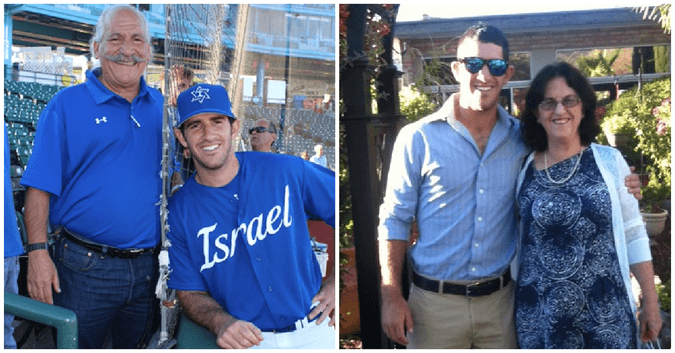
Leichman’s father, David, is a baseball fan from Queens, New York, who made aliyah before Alon was born. He was in charge of construction on Kibbutz Gezer, and when the mostly American community decided to build a baseball field, David oversaw the project, which was completed in 1983. He and other American ex-pats started a league, and the American ambassador threw out the first pitch.
Alon’s mother, Reform Rabbi Miri Gold, grew up in Detroit and spearheaded a successful movement to get the Israeli government to pay the salaries of non-Orthodox rabbis. She said in 2021 that the baseball field was a group effort.
“Many of us helped lay sod in the field, felt invested in the field,” Gold said, noting that it overlooks Tel Gezer, an archeological site associated with the Bible’s Joshua and King Solomon. A 1992 New York Times article called the field “King Solomon’s Nines.”
Alon Leichman said that the kibbutz’s American-born parents “wanted to give their Israeli kids a little bit of their culture, their background, of how they grew up.”
According to KibbutzVisit.com, Kibbutz Gezer’s “founding members arrived in Israel in the free-spirited 1970s from the United States and then from Canada and Brazil … The “first baseball field in the country was established in Kibbutz Gezer and the American pastime is deeply rooted in Kibbutz Gezer life.”
Building a baseball career
The youngest of three children, Leichman, at 7, became a Derek Jeter fan and would watch the New York Yankee slugger on VCR tapes his grandfather sent from the U.S. At 10, he earned a spot on Israel’s team in a tournament in Holland. He played multiple positions growing up. “In Israel you don’t have enough players, everyone plays everything. Left field, second base. You name it,” he said.
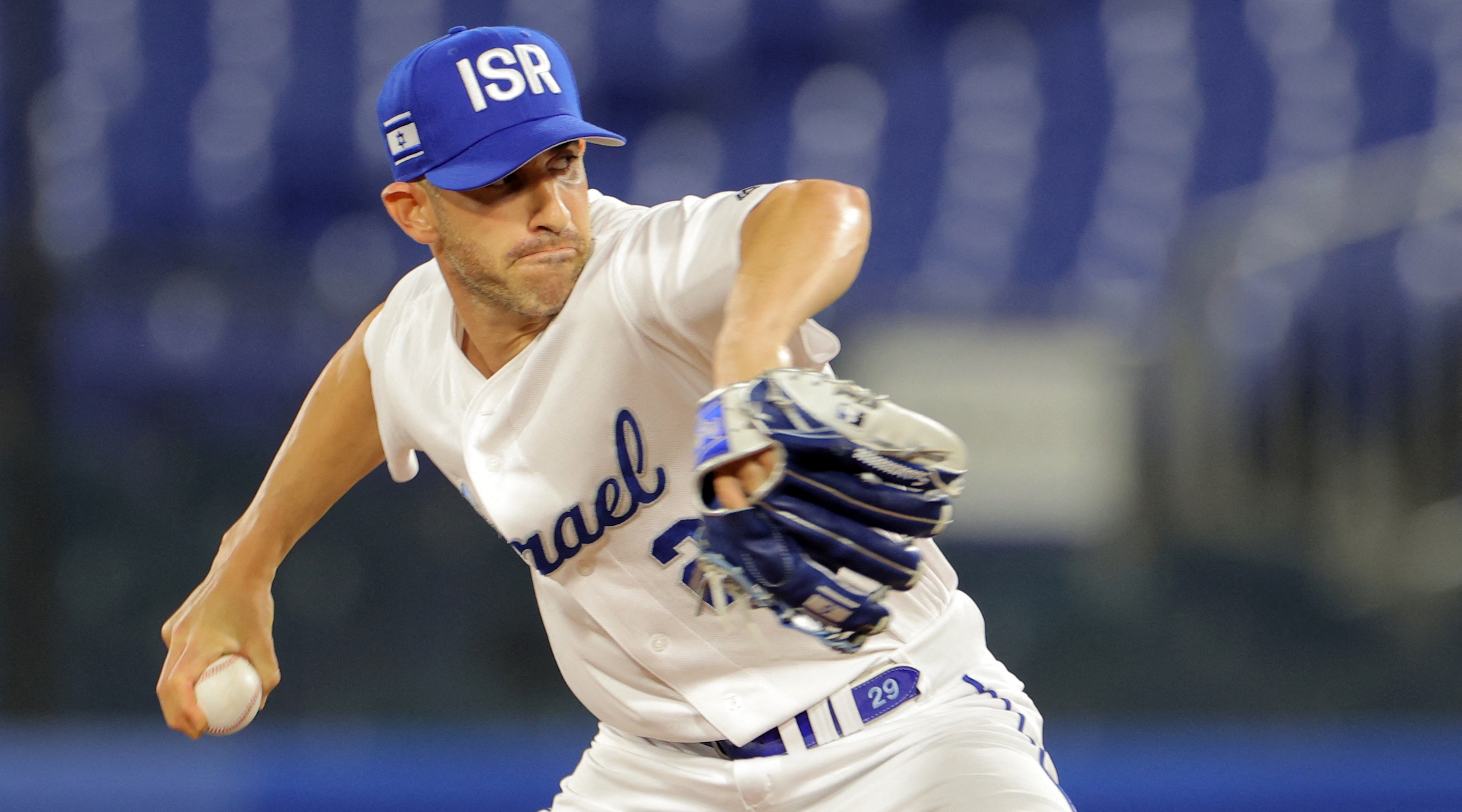
Leichman’s goal was to play college baseball after his three years of Army service, and he had a standing offer to stay with relatives in California who split their time between the U.S. and Israel. He went to Cypress College, a community college in Cypress, California, joining the team as a pitcher. But Leichman blew out his elbow in his first game, and underwent Tommy John surgery. Before the surgery, Leichman had been a power pitcher, touching the high 80s on the radar gun on his fastball.
“I actually never really recovered from that surgery,” Leichman said. “So, it was like, in one instance I became a finesse pitcher. I had like two identities as a pitcher.”
Leichman later transferred to the University of California-San Diego, where he went 10-6 with a 3.54 ERA over two seasons, but needed a second surgery. After his college career, he became the bullpen coach for the Team Israel squad that knocked off several high-ranked teams in a surprisingly good run at the 2017 World Baseball Classic. That led to an opportunity to coach with the Seattle Mariners organization. Leichman would pay his dues over the next several years, working his way up from the low minor leagues.
In 2017, he was coordinator of organization learning, followed by stints as pitching coach for the Mariners’ Dominican Summer League (2018); Low-A team in Charleston, West Virginia, (2019); AA team in Little Rock, Arkansas (2021), and AAA team in Tacoma, Washington (2022). He had returned to Israel in 2020 when the minor leagues suspended play due to the COVID-19 pandemic.
After last season, the night before he was scheduled to fly home to Israel, the Reds called and asked him to fly to Cincinnati to interview for the assistant coaching job vacancy. When he got the job, Leichman said, “It was a dream come true for sure.”
Leichman said it’s been a great experience so far.
“It’s fun, but it’s still the same game, so from a coaching standpoint, it’s pretty much everything you do in the minor leagues, just a little bit more of a magnifying glass,” he said. He added that he doesn’t have a particular style as coach, other than to be himself.
“I don’t put my coaching hat on, if that makes sense,” he said. “Your conversations with me off the field and on the field are going to be pretty similar. You’ll ask my opinion, I’ll tell you my opinion, but I try to have some facts behind what I say. I definitely put the work into research.”
As for his long-term goals, Leichman chooses to focus on the present.
“I’m just happy where I’m at,” he said. “The game will tell you where you need to be, when you need to be.”
